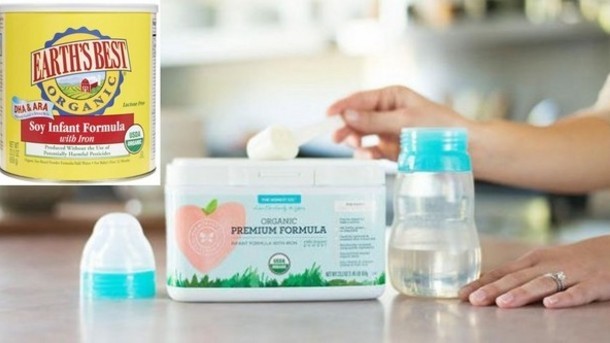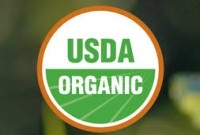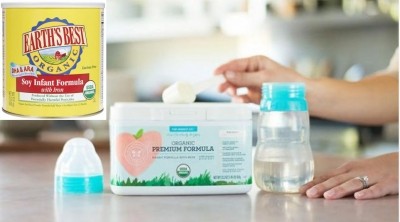Hain: 'We are in full compliance with the law’
Hain Celestial urges court to toss organic infant formula lawsuit: ‘Plaintiff wants jury to second-guess USDA's definition of organic'

The case – filed by non-profit consumer advocacy group the Organic Consumers Association (OCA) – hinges upon whether ingredients including nucleotides, taurine, l-carnitine, ascorbyl palmitate, beta-carotene (”in its synthetic form”), lutein, sodium selenite and choline chloride are allowed in organic infant formula products (click HERE).
On the face of it, therefore, this might seem like a pretty clear-cut case – are they on the ‘national list’ of synthetic ingredients permitted in organic foods (up to 5%) or not?
Proposed changes to national list have not yet been finalized, says Hain Celestial
The confusion, argues Hain Celestial, has arisen because USDA is currently considering revising the list in question, and proposed a rule in January 2012 that would disallow many of the ingredients currently permitted.
However, this rule has not yet been finalized, and until it is, said Hain Celestial, the ingredients named in the lawsuit are still allowed in organic formula.
“In addition," notes Hain Celestial, "the agency has stated that once a new rule is finalized, it will not require compliance for an additional two years.”
Plaintiff… disagrees with the USDA’s interpretation of its own regulations
Aside from synthetic vitamins and minerals, meanwhile, other ingredients that the OCA argues are prohibited are also recognized as GRAS (generally recognized as safe) by the FDA – notably the omega-3 fatty acid DHA (from algal oil) – and are explicitly permitted as ‘accessory nutrients’ within the broader category of nutrient vitamins and minerals allowed in organic infant formula, argues Hain Celestial.
“Plaintiff… disagrees with the USDA’s interpretation of its own regulations. But instead of participating in the notice-and-comment rulemaking that is currently ongoing, in which the USDA will determine whether and how to revise the “[n]utrient vitamins and minerals” category on the National List, Plaintiff improperly seeks to use this private lawsuit under the D.C. Consumer Protection Procedures Act to have a jury second-guess the USDA’s determination of the meaning of 'organic.'”
‘The allegations are very specific so someone is wrong here’
Speaking to us about this case after it was originally filed in April, David Biderman, a partner at law firm Perkins Coie, said: “The allegations are very specific, so someone is wrong here.”
Indeed, such lawsuits are fairly unusual, he observed, precisely “because the organic regulations are very specific… You either comply or don’t comply."
Read more about the case (The Organic Consumers Association, on behalf of the general public v The Hain Celestial Group, filed in the district of Columbia, 1:16-cv-00925) HERE.
100% ORGANIC*: All ingredients and processing aids must be certified organic.
ORGANIC*: All ingredients must be certified organic unless specifically allowed per the National List. Products can’t exceed a combined total of 5% of allowed nonorganic content (excluding salt and water): Non-agricultural ingredients are prohibited unless they are on the 'allowed' list (eg. baking soda, citric acid, enzymes).
If an organic ingredient isn’t commercially available in the appropriate form, quality, or quantity to replace its use and is listed HERE, the non-organic form may be used (eg. carrot juice color, fish oil).
*Products must be overseen by a certifying agent.
Source: USDA''s agricultural marketing service (click HERE)





















